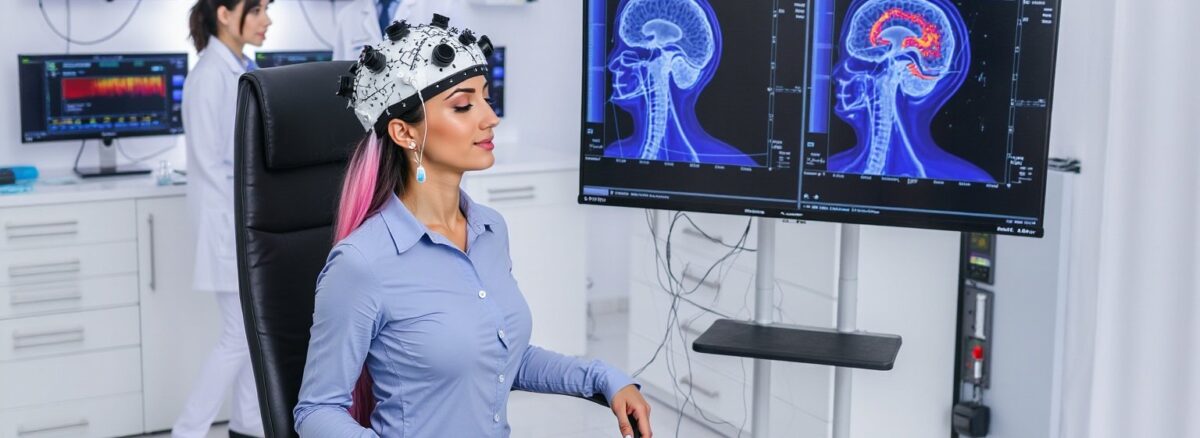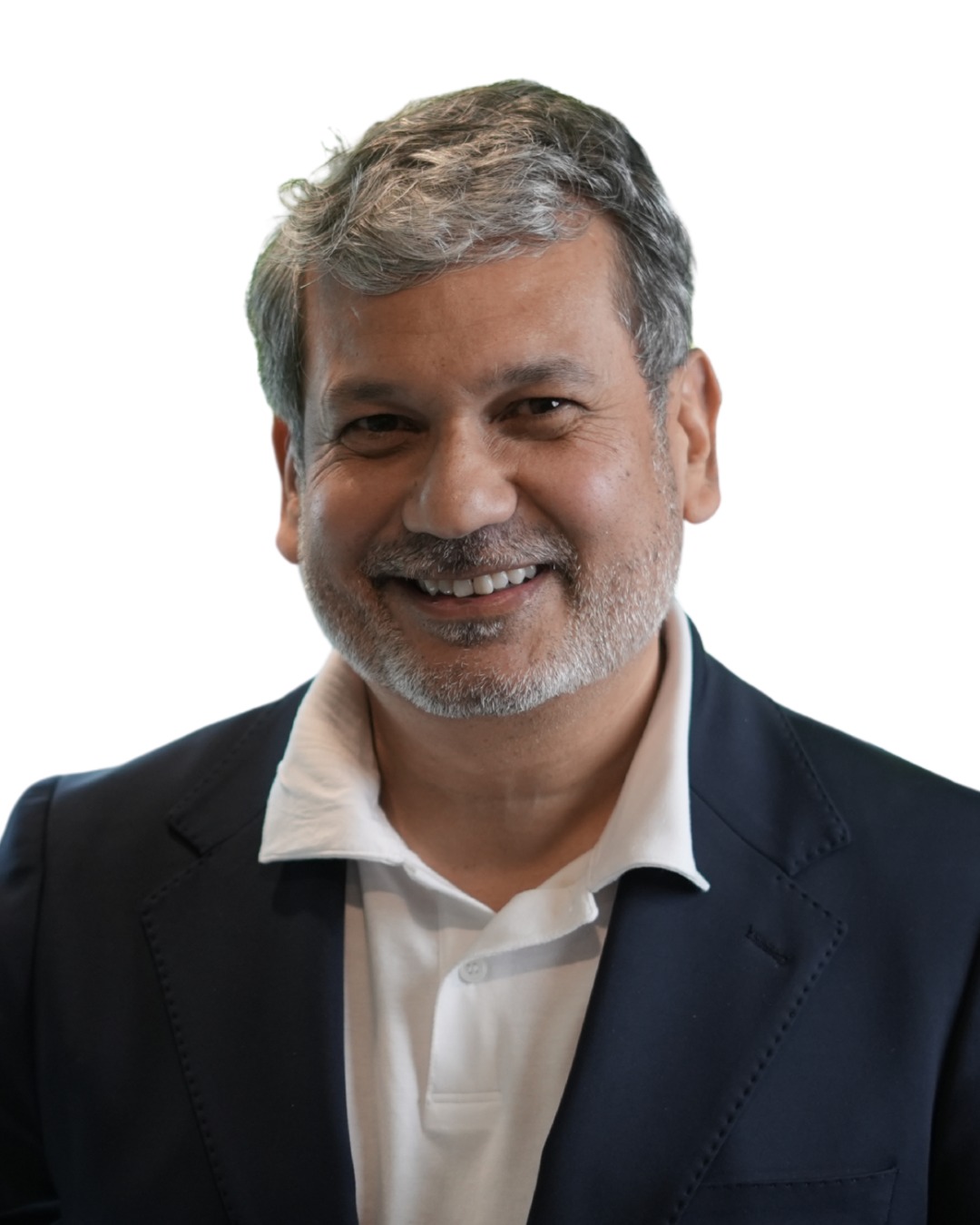Introduction to Transcranial Magnetic Stimulation
Transcranial Magnetic Stimulation (TMS) is increasingly being recognized as a revolutionary treatment for depression, anxiety, OCD, and other neuropsychiatric conditions. This non-invasive therapy, offers a promising solution for patients who have not found relief from traditional treatments. As more patients explore Transcranial Magnetic Stimulation, concerns about its safety often arise. Despite its FDA approval and a growing body of research supporting its efficacy, many people still have reservations. Unfortunately, misinformation and myths about Transcranial Magnetic Stimulation can prevent patients from accessing this potentially life-changing therapy.
In this post, we will explore the most common myths surrounding Transcranial Magnetic Stimulation therapy, present the scientific facts, and address the most frequent safety concerns—so that you can make an informed decision about your mental health care.
What Is Transcranial Magnetic Stimulation Therapy?
One of the most persistent myths is the belief that Transcranial Magnetic Stimulation is akin to Electroconvulsive Therapy (ECT). However, Transcranial Magnetic Stimulation is entirely non-invasive and safer than ECT in several ways.
The process involves placing an electromagnetic coil on the scalp. The device delivers focused magnetic pulses, which in turn generate electric currents that modulate neural activity. Sessions typically last between 20–40 minutes and are done on an outpatient basis over the course of several weeks.
Myth 1: “Transcranial Magnetic Stimulation is Like Electroconvulsive Therapy (ECT)—It’s Dangerous and Invasive”
Fact: Transcranial Magnetic Stimulation and ECT Are Entirely Different
One of the most persistent myths is the belief that Transcranial Magnetic Stimulation is akin to Electroconvulsive Therapy (ECT). While both are used for treatment-resistant depression, their mechanisms, side effects, and overall experiences differ dramatically.
- Transcranial Magnetic Stimulation is non-invasive and does not require anesthesia.
- There are no seizures involved.
- Patients remain awake, alert, and can drive themselves home after treatment.
ECT is highly effective but is associated with memory loss, the need for sedation, and greater systemic impact. Transcranial Magnetic Stimulation, in contrast, has a much milder side effect profile and is suitable for a broader patient population.
Myth 2: “Magnetic Waves Will Damage My Brain”
Fact: Transcranial Magnetic Stimulation uses Low-Intensity, Targeted Pulses
The magnetic fields used in Transcranial Magnetic Stimulation are similar in strength to those produced by an MRI machine, and are focused on specific areas of the brain. These pulses are not harmful. Transcranial Magnetic Stimulation does not alter brain structure or function in a negative way.
Extensive clinical research and over a decade of real-world application have shown that Transcranial Magnetic Stimulation is safe, precise, and highly controlled. There is no evidence of long-term harm or cognitive impairment.
Myth 3: “Transcranial Magnetic Stimulation has Dangerous Side Effects”
Fact: Transcranial Magnetic Stimulation is Well-Tolerated and Has Minimal Side Effects
Compared to medications, which may cause weight gain, sexual dysfunction, sleep disturbances, and gastrointestinal issues, the side effects of Transcranial Magnetic Stimulation are relatively minor. The most commonly reported ones include:
- Mild scalp discomfort at the treatment site
- Temporary headache
- Light facial muscle twitching during treatment
- Fatigue
These effects usually diminish after the first few sessions. Serious adverse events, such as seizures, are extremely rare, occurring in less than 0.1% of patients—primarily in those with pre-existing seizure disorders or other neurological conditions.
Myth 4: “Transcranial Magnetic Stimulation Is Only for Severe Depression”
Fact: Transcranial Magnetic Stimulation is Effective for Various Mental Health Conditions
Transcranial Magnetic Stimulation was initially FDA-approved for treatment-resistant depression, but its indications have since expanded:
- Obsessive-Compulsive Disorder (OCD)
- Anxiety disorders
- Post-Traumatic Stress Disorder (PTSD)
- Chronic pain and fibromyalgia
- Smoking cessation (recent FDA approval)
Emerging research is also exploring its role in ADHD, tinnitus, and cognitive rehabilitation. Even patients who are not fully medication-resistant can benefit from Transcranial Magnetic Stimulation when other modalities are not ideal.
Myth 5: “Transcranial Magnetic Stimulation is Not Safe for People with Metal Implants or Pacemakers”
Fact: Most Metal Implants Are Safe—But There Are Exceptions
Transcranial Magnetic Stimulation should be avoided in individuals with:
- Metallic implants or devices in or near the head (e.g., cochlear implants, deep brain stimulators, aneurysm clips).
- Pacemakers or other implanted cardiac devices that could be affected by magnetic fields.
However, common dental work, orthopedic hardware in limbs, and other non-magnetic implants are not a contraindication. A thorough pre-treatment evaluation ensures that Transcranial Magnetic Stimulation is safe and tailored to each individual’s health status.
Myth 6: “Transcranial Magnetic Stimulation Will Change My Personality or Turn Me Into a Different Person”
Fact: Transcranial Magnetic Stimulation Improves Functioning Without Changing Core Identity
Transcranial Magnetic Stimulation does not induce personality changes or alter your core sense of self. What patients often experience is a restoration of their pre-depression self—they feel more energized, more motivated, and more capable of engaging in life.
Rather than creating artificial emotional highs, Transcranial Magnetic Stimulation allows the brain to regulate itself better. Patients often report a greater sense of clarity, calm, and emotional balance.
Myth 7: “Transcranial Magnetic Stimulation Is Experimental and Lacks Sufficient Research”
Fact: Transcranial Magnetic Stimulation Is Backed by Robust Scientific Evidence
Since its FDA approval in 2008, Transcranial Magnetic Stimulation has been studied in over 300 clinical trials, with thousands of patients across diverse populations. Research consistently supports its efficacy, durability, and safety.
Key findings include:
- Response rates of up to 60–70% in treatment-resistant depression
- Remission rates of 30–40%
- Durable outcomes with maintenance protocols or booster sessions
Transcranial Magnetic Stimulation is recommended in national and international treatment guidelines, including those by the American Psychiatric Association (APA) and National Institute for Health and Care Excellence (NICE, UK).
Myth 8: “If Medications Didn’t Work for Me, Transcranial Magnetic Stimulation Won’t Either”
Fact: Transcranial Magnetic Stimulation Often Works When Medications Fail
Transcranial Magnetic Stimulation is specifically designed for individuals who have not found relief from antidepressant medications. While medications affect the entire brain systemically, Transcranial Magnetic Stimulation is precise and localized, targeting the neural circuits most involved in mood regulation.
Clinical data suggests that even patients who have tried multiple medications without success have a good chance of responding to Transcranial Magnetic Stimulation, especially when delivered in structured, evidence-based protocols.
Myth 9: “Transcranial Magnetic Stimulation Is a One-Size-Fits-All Treatment”
Fact: Transcranial Magnetic Stimulation Can Be Customized Based on Patient Needs
Modern Transcranial Magnetic Stimulation protocols are highly adaptable. Parameters such as pulse frequency, intensity, coil placement, session duration, and number of sessions can be modified according to:
- Type of disorder (depression vs OCD vs anxiety)
- Patient tolerance
- Brain mapping findings
- Clinical response over time
At Mind Brain Institute in New Delhi, India, we also offer accelerated protocols, which can compress treatment into a much shorter time frame, allowing faster relief without compromising safety.
Myth 10: “Transcranial Magnetic Stimulation Is Not Worth the Cost”
Fact: Transcranial Magnetic Stimulation Is a Long-Term Investment in Mental Health
While the initial cost of Transcranial Magnetic Stimulation may appear high compared to a monthly prescription, it’s important to look at the long-term return on mental wellness. For many patients, Transcranial Magnetic Stimulation offers:
- Sustained remission
- Fewer relapses
- Reduced medication dependence
- Improved occupational and social functioning
In some countries, insurance now covers Transcranial Magnetic Stimulation for depression. In India, the cost is significantly lower than in Western countries, and the clinical value far outweighs the investment.
Myth 11: “Transcranial Magnetic Stimulation Is Only for Adults”
Fact: Transcranial Magnetic Stimulation Is Now Being Studied in Adolescents and Older People
While Transcranial Magnetic Stimulation is currently approved for adults aged 18 and above, clinical research is expanding into adolescent and geriatric populations. Preliminary results suggest that with appropriate protocols, it is both safe and effective across age groups.
At our clinic, Mind Brain Institute in New Delhi, India, we perform rigorous assessments to determine suitability and ensure safety, regardless of the patient’s age.
The Final Word: Is Transcranial Magnetic Stimulation Therapy Safe?
Yes. Transcranial Magnetic Stimulation is one of the safest, most well-tolerated interventions available in psychiatric care today, offering a non-invasive option with minimal side effects. With minimal side effects, no need for sedation, and a strong safety record, Transcranial Magnetic Stimulation is helping redefine how we approach treatment-resistant mental health conditions.
By separating facts from fiction, we empower individuals to seek innovative, effective care without fear or hesitation.
Why Choose Mind Brain Institute for Transcranial Magnetic Stimulation Therapy?
At Mind Brain Institute, New Delhi, India we are proud to offer cutting-edge Transcranial Magnetic Stimulation services administered by qualified professionals in a medically supervised setting. Our clinic is committed to delivering:
- FDA-approved protocols
- Customized treatment plans
- Advanced brain-mapping technology
- Holistic integration with therapy, mindfulness, and yoga
- Complete confidentiality and compassionate care
If you or a loved one is struggling with depression, OCD, or anxiety and haven’t found relief through conventional treatments, Transcranial Magnetic Stimulation may be the answer you’ve been searching for.
Dr. Anuranjan Bist stands as a pioneering figure in the field of mental health, seamlessly blending traditional psychiatric methods with holistic wellness practices. With a profound understanding of the human mind and body, Dr. Bist has redefined therapeutic approaches by integrating Transcranial Magnetic Stimulation (TMS) and Ketamine therapy with ancient yoga techniques, showcasing his innovative spirit and dedication to comprehensive care.


